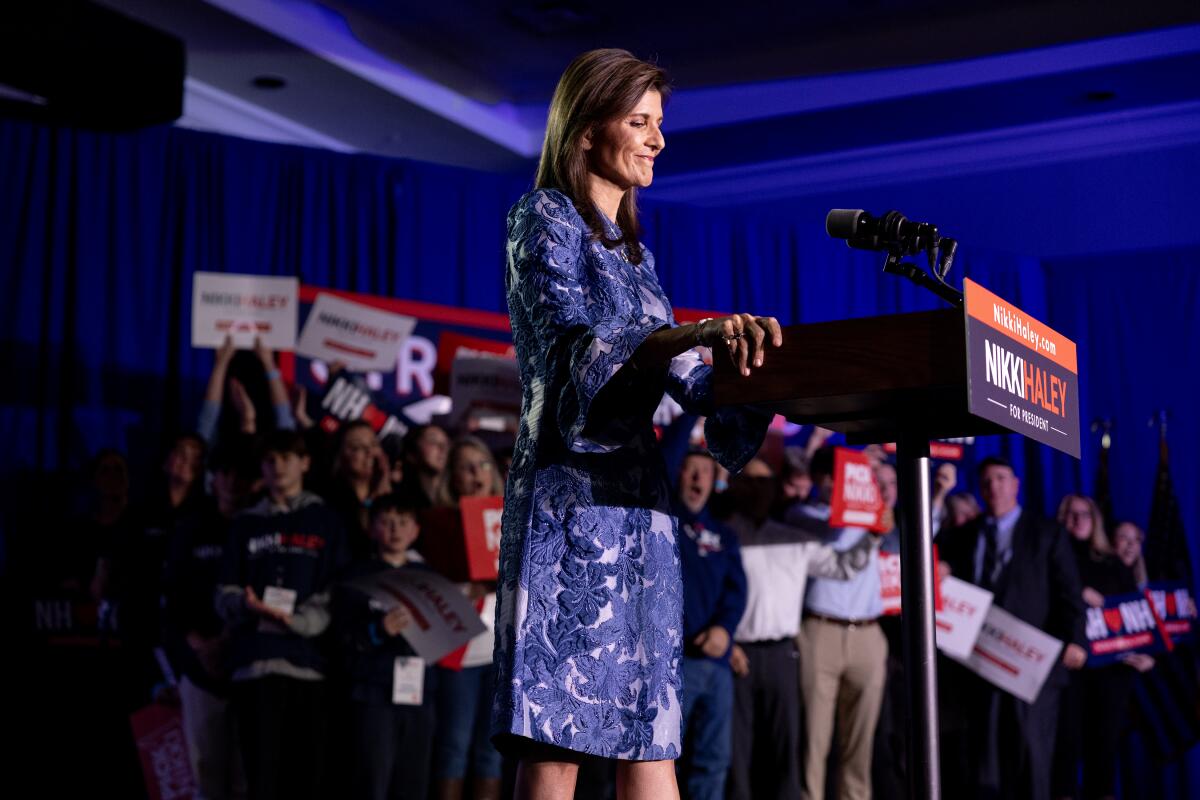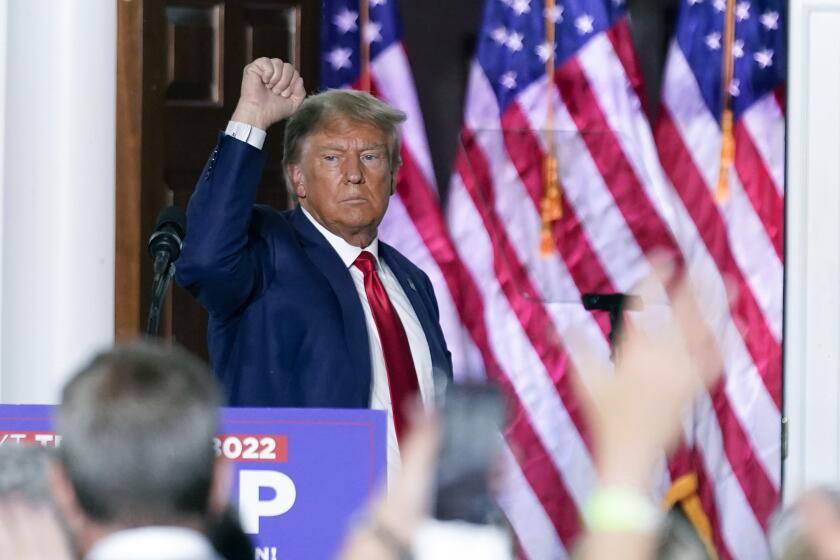Editorial: Trump’s nomination is becoming a horrible inevitability. Why can’t the GOP do better?

With Donald Trump’s decisive victory in the New Hampshire Republican primary, the possibility of anyone else securing the party’s presidential nomination is vanishingly small. That depressing reality doesn’t mean that former South Carolina Gov. Nikki Haley should abandon her campaign to overtake Trump, which she vowed to continue.
“New Hampshire is first in the nation — it is not the last in the nation,” Haley said, promising to carry her campaign to her home state’s GOP primary on Feb. 24.
Haley is right to suggest that it is wrong for the nomination to be sewn up because of results in the first two contests. The front-loading of the nomination process in both parties can effectively disenfranchise voters in states with later contests. An additional reason for Haley to persevere is the possibility, however remote, that Trump’s constellation of legal difficulties — four criminal indictments — might lead to second thoughts among Republican voters in future contests.
While the presidential contest will garner the most attention in 2024, there are many important races and measures on state and local ballots.
Yet the uncomfortable reality is that Trump’s status as a defendant seems not to have chilled the ardor for him among his supporters; the indictments may even have helped his campaign by allowing him to portray himself as a victim. He also has benefited from the contemptible deference he has received from leading figures in his party and the reluctance of most of his erstwhile Republican rivals to treat him as the threat to democracy that he is.
Haley recently has been harder on Trump — questioning his mental acuity and rejecting his claim that he won the 2020 election — but she was among the candidates who raised their hands when asked in a debate last August if they would support Trump if he were nominated even if he had been convicted of a crime. She also suggests, plausibly, that she would be a stronger general election candidate against President Biden. That claim is supported by the strong support she apparently received in New Hampshire from independent voters.
He’s made it clear time and again that if elected for a second term, he will push the nation into authoritarianism.
Yet it seems that many Republican voters — and the craven politicians who want to stay on their good side — are inured to the arguments against a Trump nomination. They remain wedded to the former president despite his two impeachments, despite his complicity in the Jan. 6, 2021, riot at the U.S. Capitol and despite his threat to exact “retribution” on behalf of his supposedly ill-treated supporters. (Trump later said, not reassuringly, that “I’m not going to have time for retribution.”) This is alarming, even if one believes that Biden can successfully leverage concerns about Trump’s conduct and temperament to eke out a victory in November.
Given the unpredictability of events, it is ominous that one of the two major parties would nominate such a manifestly unfit demagogue for the presidency. But that is where America finds itself.
More to Read
A cure for the common opinion
Get thought-provoking perspectives with our weekly newsletter.
You may occasionally receive promotional content from the Los Angeles Times.












